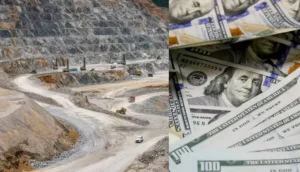China is increasing its economic presence in Cuba, Reuters reports.
Amid the energy collapse on the island, China is planning to implement 55 new solar energy projects. Chinese ships have already arrived at the port of Mariel with solar panels, spare parts and fuel. Russia was initially expected to participate in these initiatives, but most of the Russian projects remained unrealized.
The state of the Cuban energy system is critical: over the past year, the national power grid has failed four times, leaving millions of people without power and paralyzing the work of schools and businesses. It is expected that the commissioning of Chinese solar stations will significantly increase generating capacity, almost covering the daytime electricity deficit and reducing fuel consumption for nighttime power supply.
The Moscow Times recalls that in May 2023, Russian Deputy Prime Minister Dmitry Chernyshenko took part in the opening ceremony of Cuba’s largest steel mill, restored with a $100 million Russian loan. However, despite the grand opening, production never started: an acute shortage of fuel and electricity paralyzed industry across the island. During that visit, at least eight agreements were signed between Russian and Cuban entities – on wheat supplies, the opening of a Rusmarket supermarket in Havana, the restoration of historical architecture, and cooperation in the field of artificial intelligence. A project to restore the resort village of Tarara near Havana was also presented. However, most of the initiatives remained on paper.
Since 2018, Cuba has been participating in China’s Belt and Road Initiative. Since then, Beijing has invested in key facilities – transport, port, and telecommunications infrastructure. According to American University professor William LeoGrande, Chinese investment could act as a “lifeline” for the Cuban economy.
Fulton Armstrong, a former US National Intelligence Officer for Latin America, believes that Russian and Chinese investment is not enough to overcome structural problems: “Havana cannot count on a magic pill from either Moscow or Beijing. Only a strong flow of trade and investment from China could stabilize the situation, but this is unlikely.”
Բաժանորդագրվեք մեր ալիքին Telegram-ում







